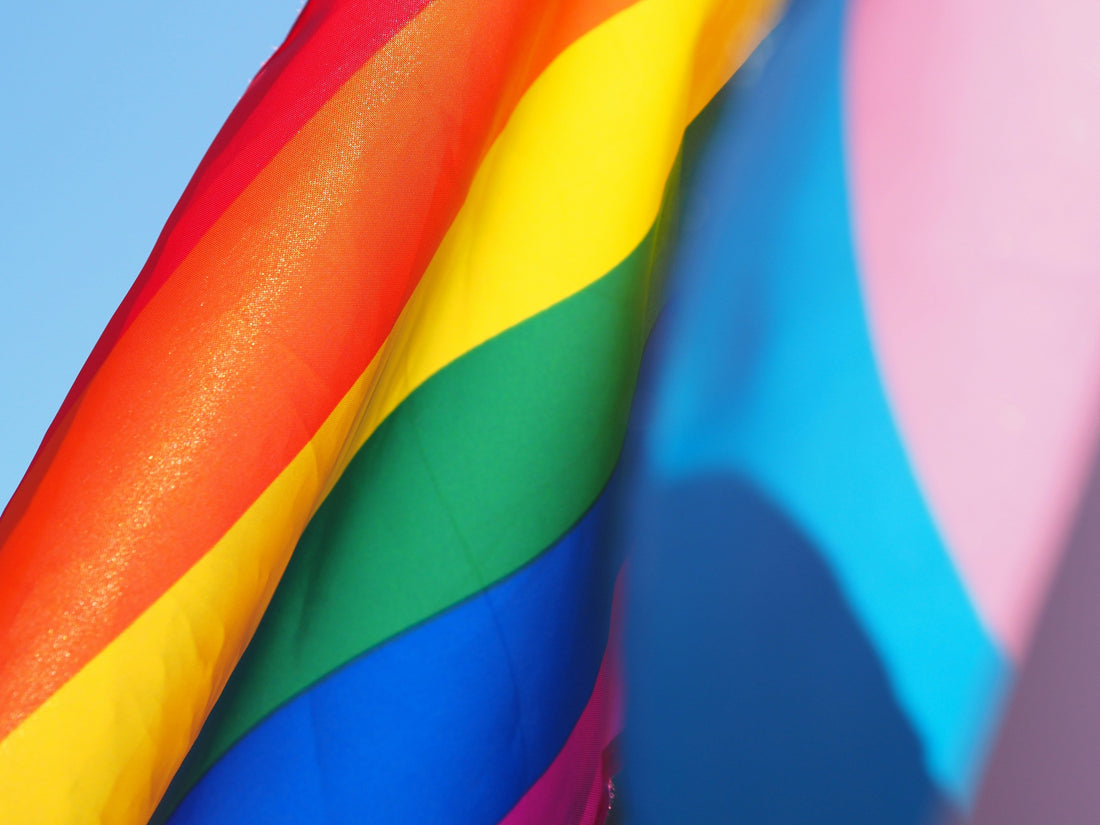
Is It OK to Exist? A Reflection on Identity, Acceptance, and the State of the World
Jason WrightShare
Ever since I was a child, people have struggled to understand that I was born male. My voice, my appearance, the way I walked, my weight—everything about me led people to make assumptions. Even as I approach my mid-40s, this misunderstanding continues. I still get called “ma’am” or “miss,” and every time, it’s embarrassing.
When I’m out with my wife, strangers don’t see us as a married couple. Instead, they assume she is a parental figure, a relative—anything but my partner. Because of my youthful, feminine appearance and her more masculine, feminine look, we don’t fit the conventional mold of what people expect a couple to be.
This used to deeply offend me. It used to hold me back. But I have always known who I am. I was born male, I identify as a cisgender man, and yet, despite this, people struggle to see, understand, or accept it.
Some of this is just human nature—people pick up on energy, chemistry, and social cues. Some people have more masculine energy, some more feminine. That’s just how life works. But what I struggle with today isn’t just personal—it’s the broader societal backlash against anyone who doesn’t conform to rigid definitions of gender and identity.
The Backlash Against Non-Dominant Communities
There is a troubling rise in resentment and revenge against those who don’t fit the “traditional” mold of masculinity and dominance. White, gendered individuals—especially men—have historically held power, and many of them see any shift in that power dynamic as a threat.
We are witnessing the rollback of DEI (Diversity, Equity, and Inclusion) initiatives, not because they don’t serve a purpose, but because they challenge the old guard. The truth is, our world has always been diverse. Gay, trans, and non-binary people have existed throughout history, across all cultures and centuries. But today, there is an intentional effort to erase them from existence, at least on paper.
One of the most devastating images I saw recently was the FBI painting over its DEI wall—literally erasing its commitment to inclusion. This kind of symbolism is a dangerous precedent. We have seen this pattern before, throughout history, and we know where it leads.
There are those who argue that LGBTQ+ representation has gone “too far.” That there is “too much” emphasis on inclusivity. But is that really the case? Or is it simply that, for the first time, marginalized groups are being heard, and that visibility makes some people uncomfortable?
The LGBTQ+ community is not asking for special treatment. They are simply asking for the same right to exist, to express themselves, and to live freely—just like gun owners, sports fans, or any other cultural group that finds pride in their identity.
So why is it that certain people believe LGBTQ+ individuals shouldn’t have their own space? Their own representation? Their own right to safety and inclusion?
Is It Really About ‘Pushing Agendas’?
Some claim that LGBTQ+ representation in schools, workplaces, and media is about “pushing an agenda.” But is it really? Sure, in rare cases, certain movements may be performative, but that is the exception—not the rule.
We penalize entire communities for the actions of a few, yet we don’t apply the same logic elsewhere. We don’t erase all corporations because some engage in fraud. We don’t dismantle entire religions because of the wrongdoings of certain individuals. So why do we single out the LGBTQ+ community in this way?
I have LGBTQ+ friends, relatives—people I care deeply about—and I fear for them. I worry about the world they are inheriting, a world that once again wants to silence them. We are turning back the pages of history, erasing protections, and pretending these people do not exist. And if history tells us anything, it’s that erasure leads to suffering.
People will be misgendered. People will be dehumanized. People will be attacked.
Do I think some things have gone too far? Maybe. But do I think we have gone far enough in creating true inclusivity? Absolutely not.
This is a critical moment in history. We have the opportunity to create balance—to define what true inclusion looks like. Instead, we are watching the rise of extreme masculinity, where anger, volume, and intimidation are being mistaken for leadership.
The Loudest Voices Are Often the Angriest
I am not an expert. I am not a scientist. I didn’t write this based on studies or data. I am speaking from the heart.
And from my perspective, it is often the loudest and angriest voices that command the most fear. And fear, in turn, breeds obedience.
When people fear you, they follow you. That is a sad truth about humanity—we are not as evolved as we like to think. We still respond to dominance, aggression, and power in ways that often harm progress.
But I refuse to believe that we cannot do better.
As I think about the future, I wonder: how do we silence hate and elevate love? How do we ensure that those who have fought so hard for visibility and inclusion do not lose everything they’ve gained?
Is It OK?
Is it OK to live?
Is it OK to be you?
Is it OK to be kind?
Is it OK to be beaten up?
Is it OK for your child to be harassed?
Is it OK for your child to feel so unwanted that they take their own life?
Ask yourself these questions. Not as a politician. Not as a conservative or a liberal. Not as a Christian, an atheist, or anything in between.
Ask yourself these questions as a human being.
Is it OK for someone you love to suffer because they don’t fit someone else’s expectations?
Because that is the reality for millions of people today.
The Consequences of Your Actions
Your vote, your words, your actions—they all have consequences.
Regardless of where you stand politically, ask yourself: how do your choices impact the people you love?
At the end of the day, our families, our friends, and our communities are all we have. They are our history, our legacy. And history will not forget what we did to the people we love.
Choose kindness. Choose compassion. Choose to stand on the right side of history.
Because one day, someone you love might need that same compassion. And I hope, when that time comes, that the world is still a place where they are allowed to exist.
-
Thank you for reading :) until next time!
Photo by Cecilie Bomstad on Unsplash
